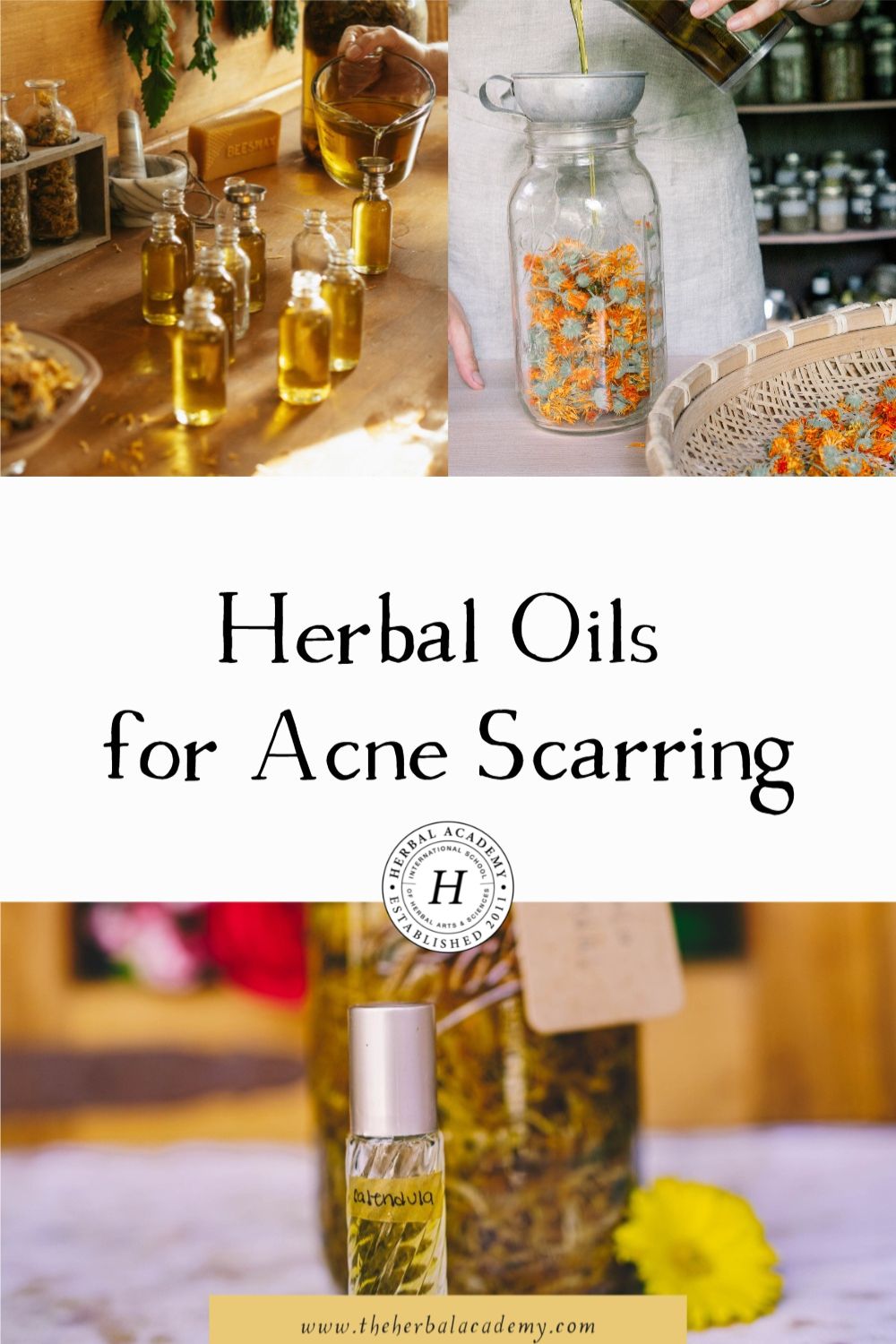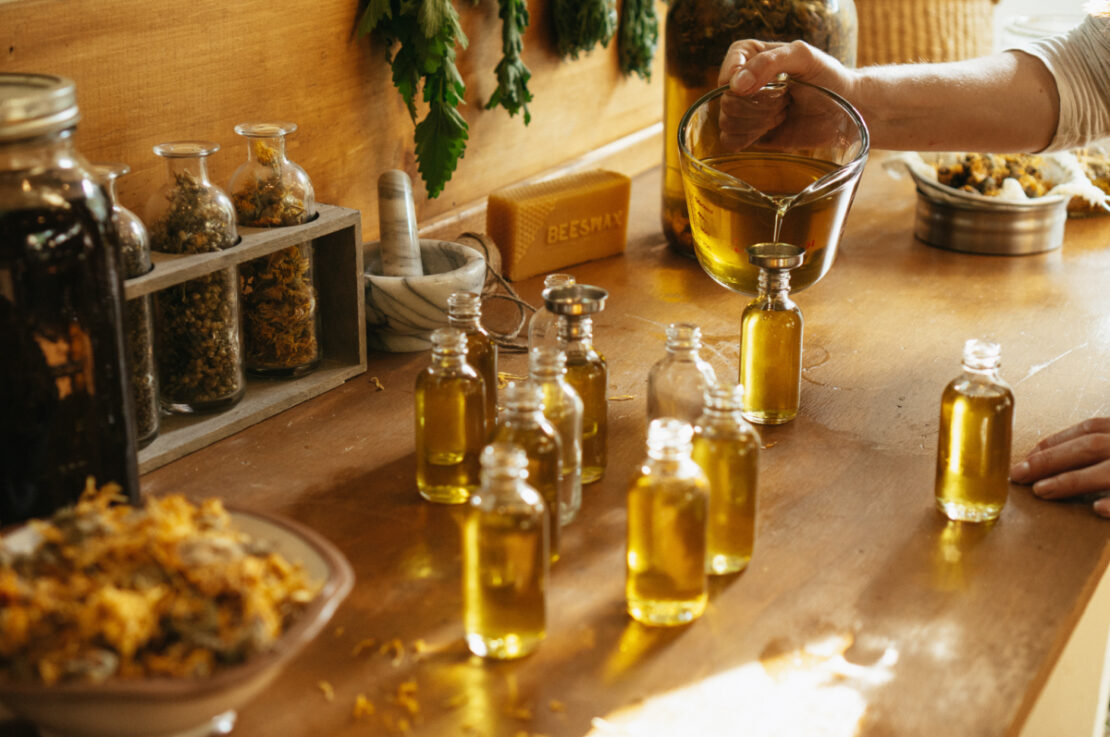
Herbal Oils for Acne Scarring
Few things can make a person feel as vulnerable and self-conscious as acne. While many chronic issues aren’t immediately obvious to others, the pimples and bumps associated with acne are on display for peers, love interests, and strangers to see. Frustratingly, even after the blemishes have resolved, they can leave long-lasting scars that can continue to affect self-confidence.
Meeting the Herbs Halfway
Our society offers an array of chemical solutions to help clear the skin, but we rarely hear about how to address the underlying causes of acne — or natural options to reduce the chances of acne scarring happening in the first place.
As my dear teacher and renowned herbalist, Michael Moore, always said, “You have to meet the herbs halfway.” This is so true when it comes to taking care of acne.
Whether you’re struggling with acne yourself or supporting a loved one or client through it, I encourage you to follow a dual path toward an improved complexion:
- Seek the root cause and work to correct the underlying issue.
- Use herbal face oils on acne scarring that is in the process of healing.

Finding the Root Cause of Acne
The onset of acne is often a sign that something is out of balance in our lives. Our skin’s health is a reflection of our internal health, and the inflammation and infection we call acne are often triggered by some kind of internal overload. Many cases of acne may be evidence that our skin is working to release toxins or waste because the lungs, liver, or digestive tract may be overburdened.
Along with using herbal facial oils to heal the scarring process, identifying these sources of overload is important. Here are four of the most common sources of overwhelm I’ve seen in my clinical herbal practice over the last 25 years.
Hormone Overproduction: This is a well-known cause of acne, and why pimples are so prevalent during puberty. The body is involved in all kinds of hormone production and the liver and bowels aren’t able to keep up to eliminate the waste from that process, so it shows up on the skin.
Constipation: If you aren’t eliminating properly through your bowels, the body will attempt to move excess metabolic waste out through the skin.
Overloaded Liver: If the liver is backed up with processing toxins from one of the many possible sources—medications, pesticides, low-grade oils in food, or a poor diet—it can show up on the skin.
Topical Exposures: Sometimes our skin is reacting to surface-level exposure to the chemicals found all around us: laundry detergent, makeup, lotions, airborne chemicals from new cars, carpets, or appliances. This type of topical exposure can play a role in that it can trigger surface-level inflammation and adds to any overload in the pathways of elimination.
Because the specific source of overload varies from person to person, there isn’t a one size fits all answer to what is causing acne in any individual. A holistic practitioner can help you get to the root cause of your unique situation, but if that’s not an option for you, become a detective yourself and follow the clues that lead to your specific triggers. Keep a log of when flares occur, and jot down foods you’ve been eating, sugar or alcohol consumption, medications, bowel movements, and sources of topical exposure to chemicals. Look for patterns. After you’ve identified a potential trigger, try removing it and see what happens.
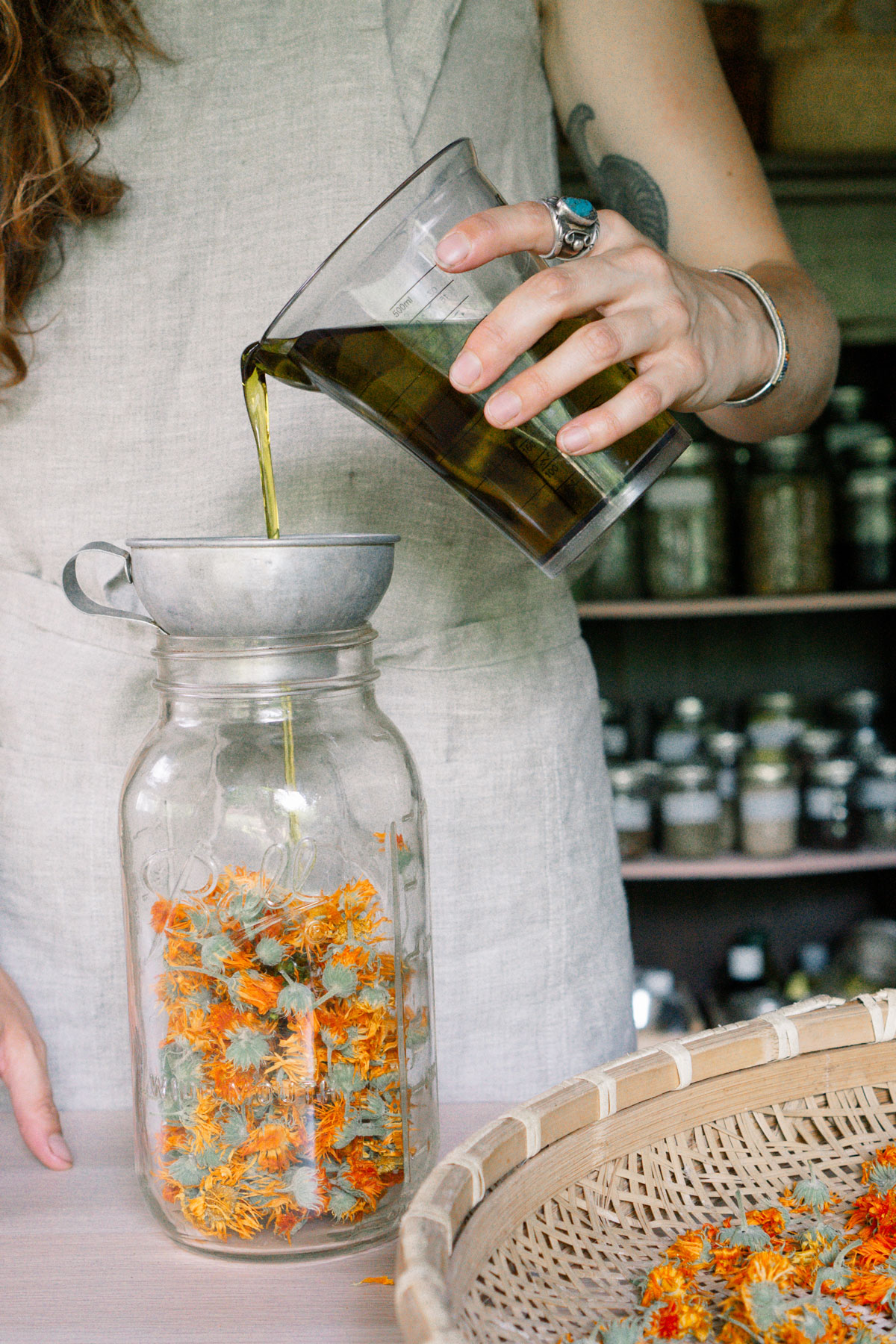
Herbal Oils for Acne Scarring
Many herb-infused oils can help reduce the chances of acne scars forming. However, they must be used at the right time in the body’s healing process.
If you add oil to an erupting acne sore it can attract dirt to the infection, slowing healing. And if you wait until the skin has healed, the scars may have already formed. Although I’ve seen herbal face oils reduce the visibility of old acne scars, you’ll have the most success using them just after the acne dries up and the skin is beginning to heal on its own.
In case there are any lingering suspicions that oil is bad for acne-prone skin, decades spent working with clients have shown me that this isn’t the case. In fact, I’m more concerned about over-cleansing and drying the skin, which exacerbates irritation and prompts the body to produce more sebum. Herb-infused oils gently moisturize and restore skin, encouraging balanced sebum production.
Here are two tried-and-true formulas I’ve used in my clinical herbal practice and with students for the past 25 years to support their beautiful skin. Herb-infused oils are made by infusing whole herbs into a carrier oil (not to be confused with essential oils, which are made through a distillation process). Comfrey is a choice herb for skin cell regeneration and calendula ideal for moderate inflammation.
How these herbs help:
St. John’s wort – reduces inflammation and speeds healing
Comfrey – promotes skin cell regeneration
Plantain – an astringent that helps pull out toxins and impurities
Calendula – ideal for moderate inflammation
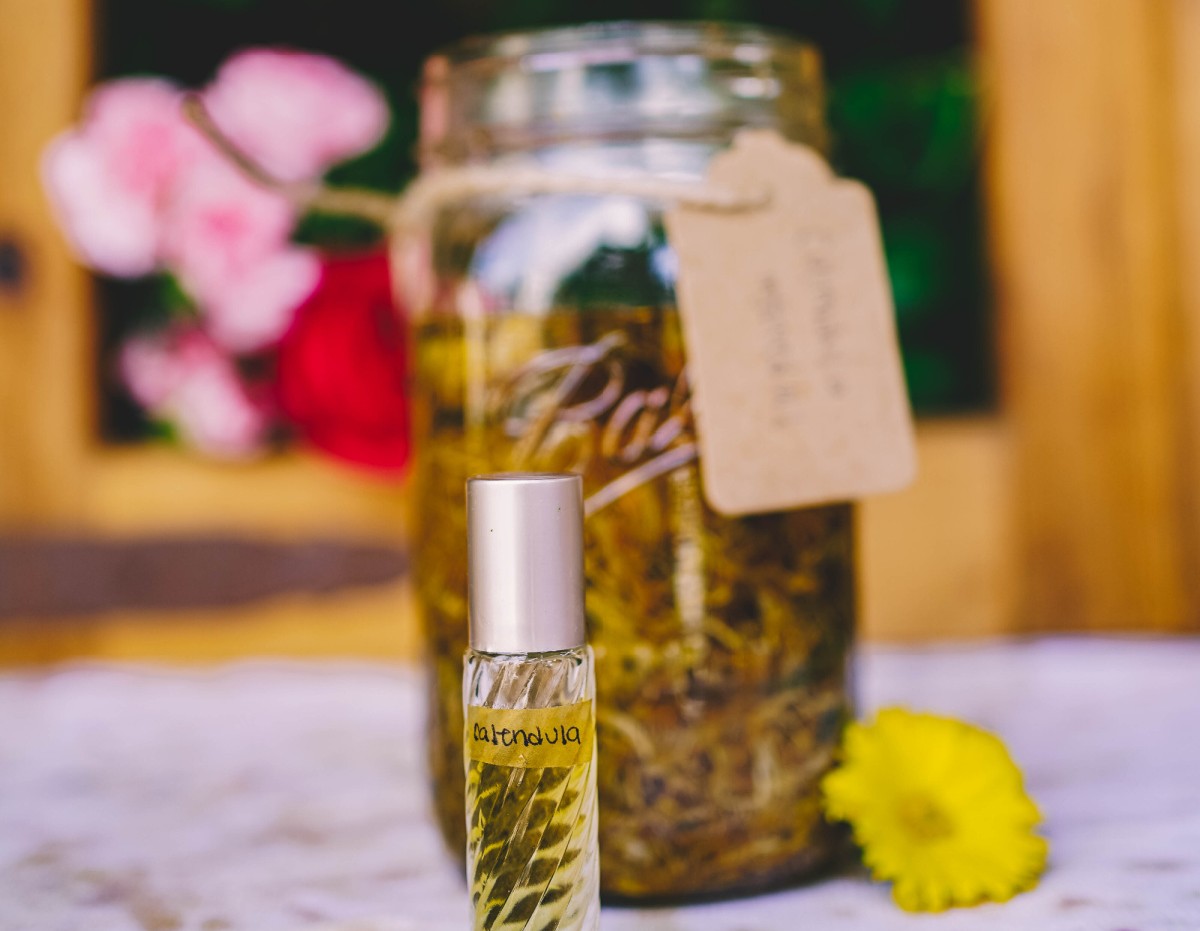
Facial Oil for Acne Scarring
This facial oil can be used for all skin types.
2 ounces St. John’s wort (Hypericum perforatum) flower-infused oil
1 ounce comfrey (Symphytum officinale) leaf-infused oil
1 ounce plantain (Plantago spp.) leaf-infused oil
1 ounce calendula (Calendula officinalis) flower-infused oil
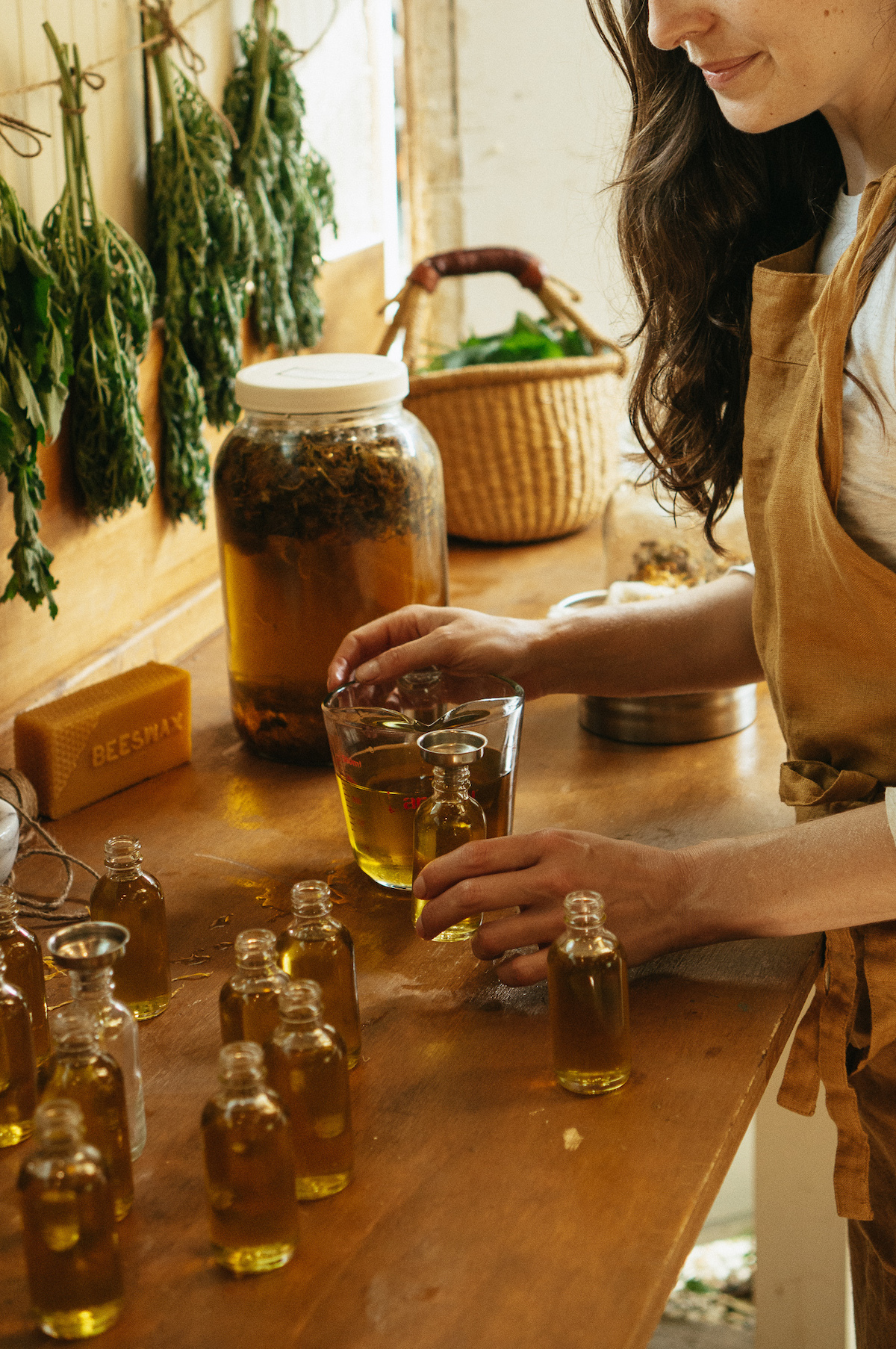
Sensitive Skin Facial Oil for Acne Scarring
This facial oil helps with scarring for more sensitive skin.
1 ounce rose (Rosa spp.) petal-infused oil
1 ounce elder (Sambucus canadensis or S. nigra) flower-infused oil
1 ounce St. John’s (Hypericum perforatum) flower-infused oil
In Closing,
When we recognize acne as a signal of imbalance, we begin to understand that it’s simply another way our body communicates with us. Our skin reflects our overall health, and when we have blemishes we need a little extra care to bring our bodies back to balance. These herbal face oils give our skin the love it needs at just the right time, and are an effective natural option to reduce the chances of acne scarring.
